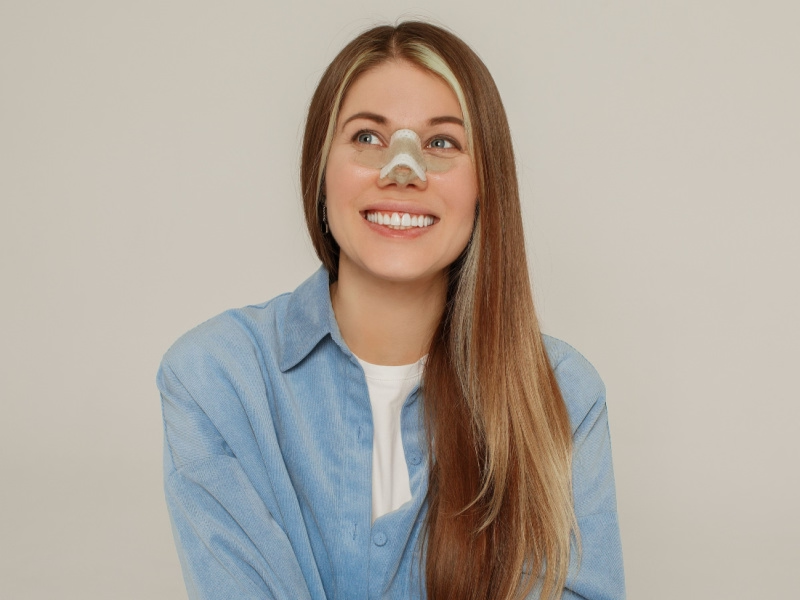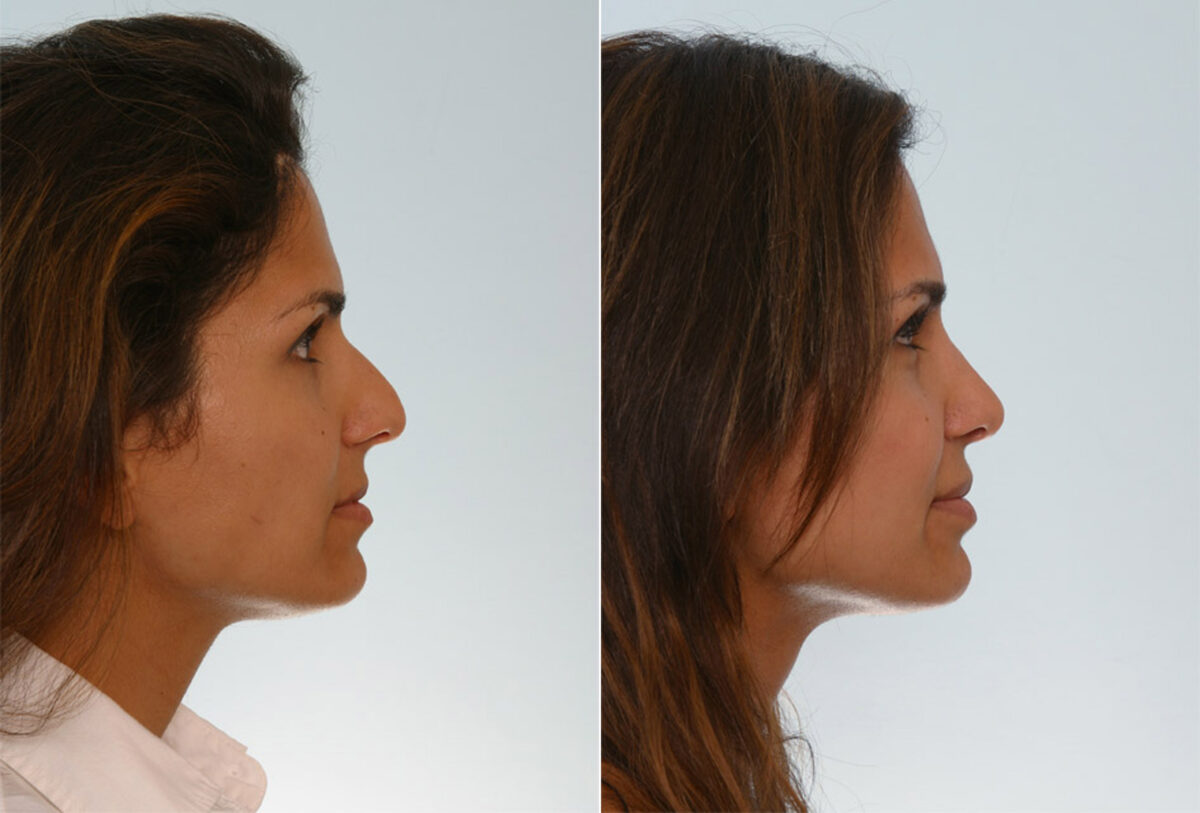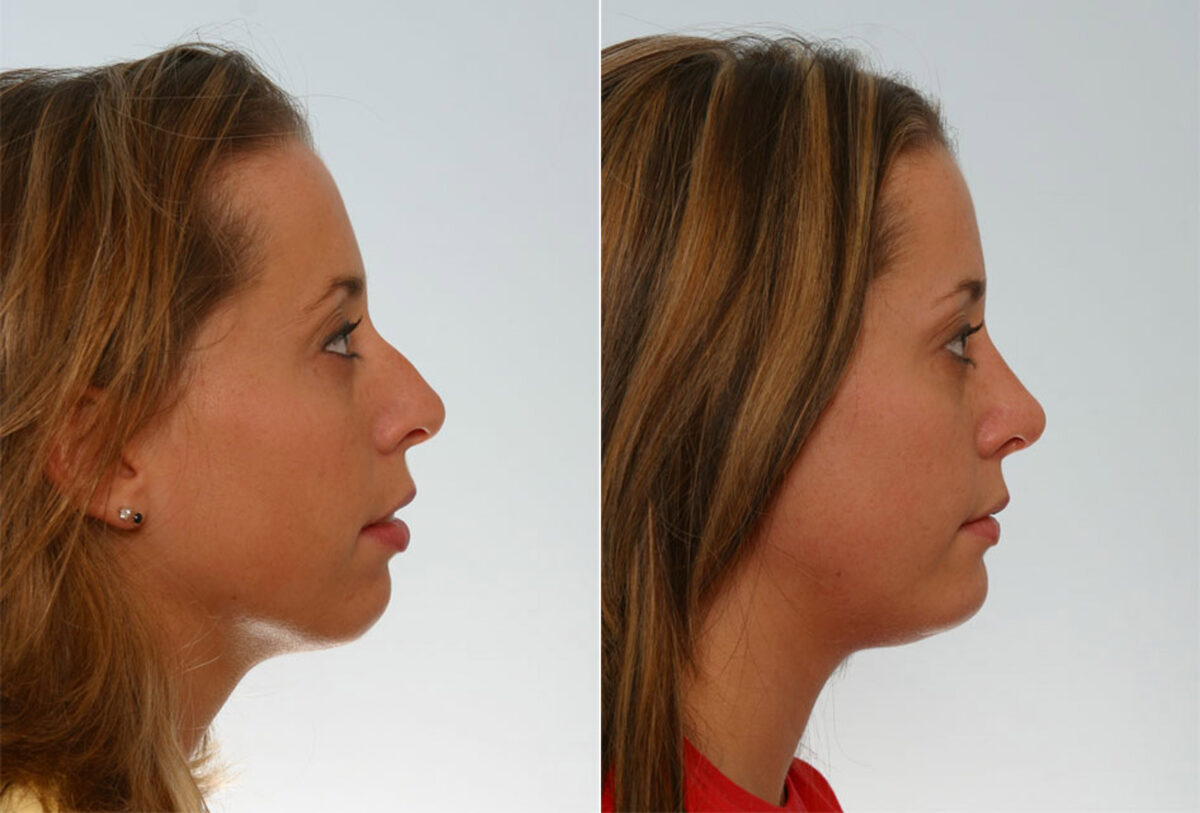Just had a nose job and wondering what comes next? Well, you’re not alone. Post-surgery recovery from rhinoplasty, or as most of us would say a “nose job,” can sometimes feel like trying to navigate through a maze blindfolded. But don’t worry, we’ve got your back! Let’s journey through this labyrinth together with Dr. Vitenas, a leading board-certified, Houston plastic surgeon, as our guide.

Day 1: The Surgery Day
The excitement and nervousness that comes with a rhinoplasty surgery is completely normal. Before you know it, the big day will be here! Preparing for your nose surgery begins long before the actual procedure. Make sure to do research and ask any questions you may have about the process. Rest assured that the quality of care provided by Houston plastic surgeon Dr. Vitenas and his team will guide you smoothly through the entire process. It’s also important to get enough rest and stay healthy before your surgery so that you can
The First Couple of Days After Surgery
The first couple of days after rhinoplasty surgery can be a confusing and uncertain time. While it is normal to experience some swelling and bruising, you should also expect to feel some discomfort or pain. It is important to follow Dr. Vitenas’s instructions regarding ice packs, cold compresses, medication, and rest in order to reduce swelling, speed up healing time, and ensure a successful outcome.
- Ice Packs & Cold Compresses: Ice packs can be applied to the face for 15 minutes at a time with at least 30 minutes between each application. Cold compresses can help reduce facial tension and make your skin feel more comfortable.
- Medication: Pain medication prescribed by Dr. Vitenas will manage any discomfort. Over-the-counter pain medications are usually sufficient to manage any pain you may experience.
- Rest: Time for rest is crucial during these first days after surgery. It might be tempting to return to daily activities but slow down, your body needs to heal!
First Week Post-Operation
By now, the initial post-operative swelling has subsided, and you’ll notice a dramatic reduction. However, some uneven swelling might persist.
- Nasal Dressings & Splints: These are typically removed by Dr. Vitenas a week into recovery, revealing your new bone structure and the basic structure of your nose.
- Elevated Sleeping: Keep your head elevated even while sleeping to enhance blood flow and reduce swelling after surgery.
The Next Few Weeks After Surgery
At this stage, you’re likely to get the green light for light activity, but moderate exercise should still be avoided to prevent a surge in blood pressure and consequent swelling.
- Nutrition: Eating chewable food and maintaining a balanced diet is vital. Think of your body as a healing machine that needs premium fuel.
- Avoid Sun Exposure: Your skin and delicate cartilage are still healing, and excessive sun exposure might interfere with this process.
A Few Months After Your Nose Job
Remember, rhinoplasty recovery time is different for everyone. On average, most Rhinoplasty patients can return to normal activities a few weeks after surgery, but residual swelling may linger for several months.
- Check-Ups: Regular appointments with Dr. Vitenas ensure optimal healing.
- Massage: Gentle massage might be suggested by Dr. Vitenas to facilitate blood flow and soften the soft tissue.
Rhinoplasty Recovery: The Bottom Line
Rhinoplasty is a delicate procedure that requires patience and care, particularly in the aftermath of surgery. After the swelling has gone down, many patients are eager to see their results. However, it’s important to remember that each case is unique, and healing from rhinoplasty takes time. During this post-surgery phase, it can be frustrating to not be able to see the full outcome of the surgery right away. It is important for patients to stay patient and understand that recovery from rhinoplasty takes several months before the final results can be appreciated.
It is also essential for post-operative rhinoplasty patients to attend regular check-up consultations with Dr. Vitenas or another qualified physician to ensure optimal healing. These appointments allow for monitoring of progress and early detection of any complications that may arise during recovery. The physician can also provide guidance on massaging techniques that will help reduce swelling and promote healthy blood flow throughout the area as well as advice on other measures like avoiding sun exposure which may interfere with the healing process.
In short, while swelling after rhinoplasty might have subsided shortly following the surgical procedure, it’s important for patients to understand that complete recovery from rhinoplasty takes several months before one can appreciate the true outcome of their nose job. It is essential for post-operative patients to stay patient with their results and follow up regularly with a qualified physician in order to ensure an optimal healing experience and successful outcome from their rhinoplasty surgery!
Nose Surgery Longevity
To ensure the best, long-lasting outcome from your rhinoplasty, several personal factors need consideration.
First, your age plays a role. Typically, younger patients with thicker skin recover faster, while older individuals may have a harder time maintaining their reshaped noses. Skin thickness and texture also impact results; thicker, smoother skin tends to heal better and maintain its shape longer.
Your overall health is equally important, with conditions like diabetes and high blood pressure potentially affecting recovery and final results. Hence, it’s crucial to inform Dr. Vitenas about any health issues beforehand. Lifestyle habits, like smoking and excessive sun exposure, can also hinder healing and damage facial tissues.
Finally, remember that genetics will influence the outcome of your rhinoplasty. Dr. Vitenas will discuss realistic expectations based on your unique facial structure to ensure satisfaction with the results.
Rhinoplasty Recovery FAQs
What can cause a blood clot during the rhinoplasty recovery process?
Staying immobile for prolonged periods post-surgery can contribute to blood clot formation. That’s why light activity is often encouraged a few weeks after surgery.
What can I do to reduce facial bruising?
Cold compresses and keeping the head elevated can help. Also, certain supplements and medications might increase bruising, so always follow Dr. Vitenas’ instructions.
When can I return to my daily activities after rhinoplasty?
For most people, returning to non-strenuous daily activities is possible a couple of days after surgery. However, the exact time varies based on individual healing rates and the complexity of the procedure.
How do I know if my recovery is on track?
Regular follow-ups with Dr. Vitenas are crucial. He can monitor your progress and address any issues promptly. Remember, every patient is unique, and so is their recovery.
When will the post-surgery swelling completely disappear?
While most swelling subsides within a few weeks, minor residual swelling may linger for up to a year. But don’t worry, this is usually only noticeable to you and Dr. Vitenas.


